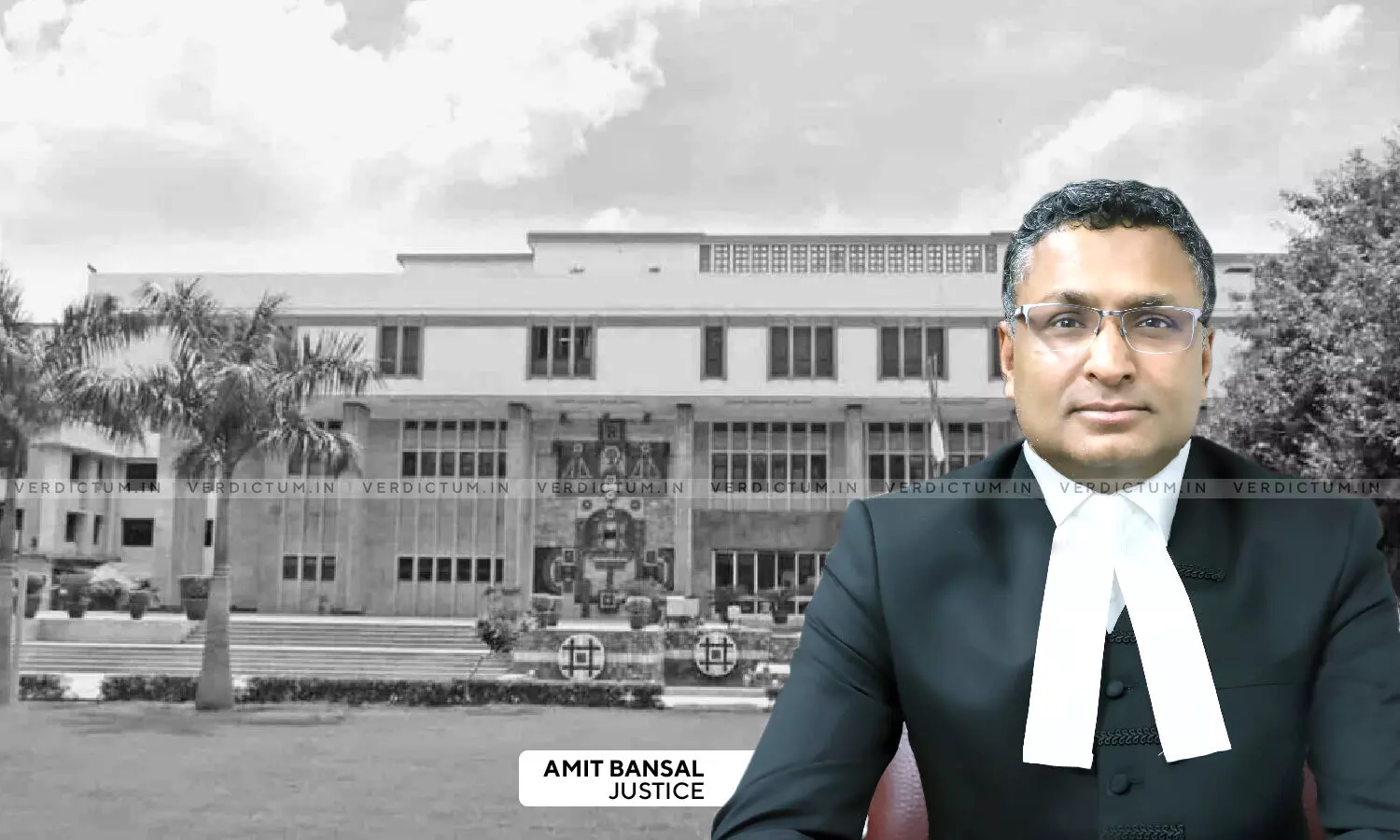
A Simple Act Of Touch Cannot Be Considered Manipulation Under Section 3(C) Of POCSO Act: Delhi High Court
 |
|The Delhi High Court has held that a simple act of touch cannot be considered to be manipulation under Section 3(c) of the Protection of Children from Sexual Offences Act, 2012 (POCSO Act) which defines penetrative sexual assault.
An appeal was filed by an accused for setting aside the judgment of the conviction and the order of sentence passed by the Additional Sessions Judge. He was convicted for the offences punishable under Section 376 of the IPC and Section 6 of POCSO Act.
A Single Bench of Justice Amit Bansal observed, “A simple act of touch cannot be considered to be manipulation under Section 3(c) of the Act. It is relevant to note that under Section 7 of the POCSO Act, ‘touch’ is a separate offence. If the submission raised by the learned APP that a touch would amount to manipulation is accepted, then Section 7 of the Act would be rendered redundant.”
The Bench noted that as per Section 3(c) of the POCSO Act, for an act to be a penetrative sexual assault, the accused has to manipulate any part of the body of the child so as to cause penetration and there is nothing in the case to show that there was any manipulation on any part of the body of the victim so as to cause penetration.
Advocate Rajive Maini appeared for the appellant/accused while APP Ritesh Kumar Bahri appeared for the respondent/State.
Brief Facts -
The appellant was sentenced to rigorous imprisonment for a period of ten years for the conviction under Section 6 of the POCSO Act and to pay a fine of Rs. 5,000/- and no sentence was awarded to him under Section 376 of the IPC in view of Section 42 of the POCSO Act. As per the prosecution, in the year 2016, a PCR call was received by the police from the father of the victim, regarding sexual assault on his daughter, who was aged six years at the time of the incident. Information was recorded and the police arrived at the residence of the victim. The victim narrated to the police that, when she had gone for tuition, the appellant, who was the brother of her tuition teacher, touched her anus with his finger, and it caused her severe pain.
The victim informed her mother about the incident at the tuition and the resulting pain and she along with her parents and a police official went to the hospital, where her medical examination was conducted. Based on the information provided in the Rukka, an FIR under Section 376 of the IPC and Section 6 of the POCSO Act was registered at the police station and the statement of the victim under Section 164 of the CrPC was recorded before the Metropolitan Magistrate. The appellant was arrested and thereafter, the Sessions Court convicted him for the offences under Section 376 of the IPC and Section 6 of the POCSO Act.
The High Court in view of the abovementioned facts said, “It cannot be disregarded that the victim at time of incident was a child of six years and therefore, some leeway has to be provided for minor inconsistencies in her statement. However, from the analysis above, it cannot be stated that the contradictions in the statements of the victim are minor or immaterial. If her anal region was indeed cut by the appellant with his finger nails, it would have caused a lot of pain and she would have disclosed the same in her earlier statements under Section 161 of the CrPC and Section 164 of the CrPC.”
Additionally, the Court said that if the appellant had used his nails, it would have reflected in the MLC and as per the MLC, there was no redness or external mark of injury over the body of the victim. It expressed that there was no forensic examination done in respect of the appellant using his nails to cut the anal region of the victim.
“… I cannot concur with the finding of the Trial Court that an inference of insertion can be made from the fact that the victim suffered pain. … Merely because there have been inconsistencies in the statement of the child victim, it cannot be said that her testimony is completely unreliable and should be disregarded in its entirety”, further observed the Court.
The Court also took note of the fact that the child victim has consistently stated in her testimony as well as various previous statements that she was touched in the anal region by the appellant and the touch caused her pain.
“I am of the opinion that the offence under Section 6 of the POCSO Act has not been proved against the appellant beyond all reasonable doubt. But the offence under Section 10 of the POCSO Act is proved beyond all reasonable doubt against the appellant”, concluded the Court.
Accordingly, the High Court partly allowed the appeal, modified the judgment to the extent that instead of Section 6 of the POCSO Act, the appellant be convicted under Section 10 of the POCSO Act.
Cause Title- Shantanu v. The State (Neutral Citation: 2023:DHC:8045)